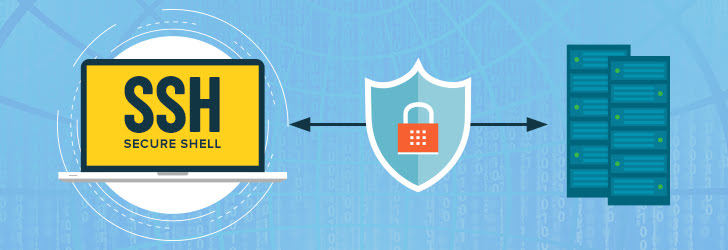SSH and SCP
 ABHIJEET MAHAJAN
ABHIJEET MAHAJAN
SSH (Secure Shell) is a network protocol that allows users to securely connect to and access remote systems. SSH is commonly used to connect to Linux and Unix systems, but it can also be used to connect to other types of systems, such as Windows and macOS systems.
SSH encrypts all traffic between the client and server, making it a very secure way to connect to remote systems. SSH also provides several other features, such as authentication and authorization, tunneling, and port forwarding.
Key pairs
SSH uses public-key cryptography to authenticate users. When you create an SSH key pair, a public key and a private key are generated. The public key is placed on the remote system, and the private key is kept secret.
When you try to connect to a remote system using SSH, the remote system will send you its public key. Your SSH client will then verify the public key against its own private key. If the keys match, then the connection is allowed.
SCP (Secure Copy) is a command-line tool that uses SSH to securely transfer files between two systems. SCP is similar to the cp command, but it uses SSH to encrypt the data being transferred.
To use SCP to transfer a file from one system to another, you would use the following command:
scp <file> <user>@<remote_host>:<remote_dir>
For example, to transfer the file myfile.txt from your local system to the user ubuntu on the remote system example.com, you would use the following command:
scp myfile.txt ubuntu@example.com:/home/ubuntu
Here are some examples of how SSH and SCP can be used:
A system administrator can use SSH to connect to a remote server to manage it.
A developer can use SSH to connect to a remote development server to work on code.
A user can use SSH to connect to their home computer from a remote location to access their files.
A user can use SCP to transfer files between their computer and a remote server.
SSH and SCP are powerful tools that can be used for a variety of purposes. By understanding how to use SSH and SCP, you can make your work and personal life easier and more secure.
Subscribe to my newsletter
Read articles from ABHIJEET MAHAJAN directly inside your inbox. Subscribe to the newsletter, and don't miss out.
Written by

ABHIJEET MAHAJAN
ABHIJEET MAHAJAN
Tech Entusiast and DevOps Practitioner